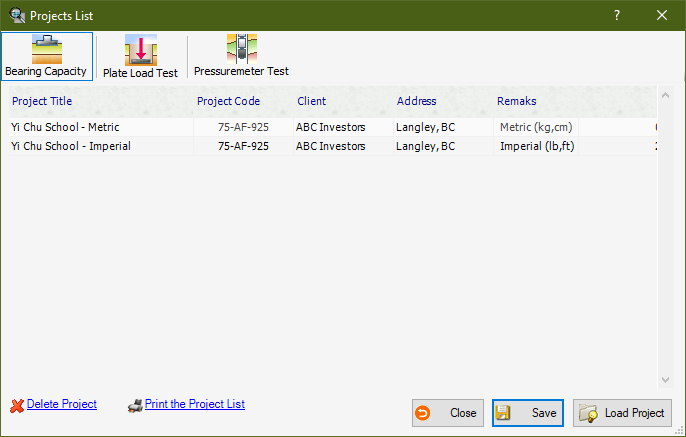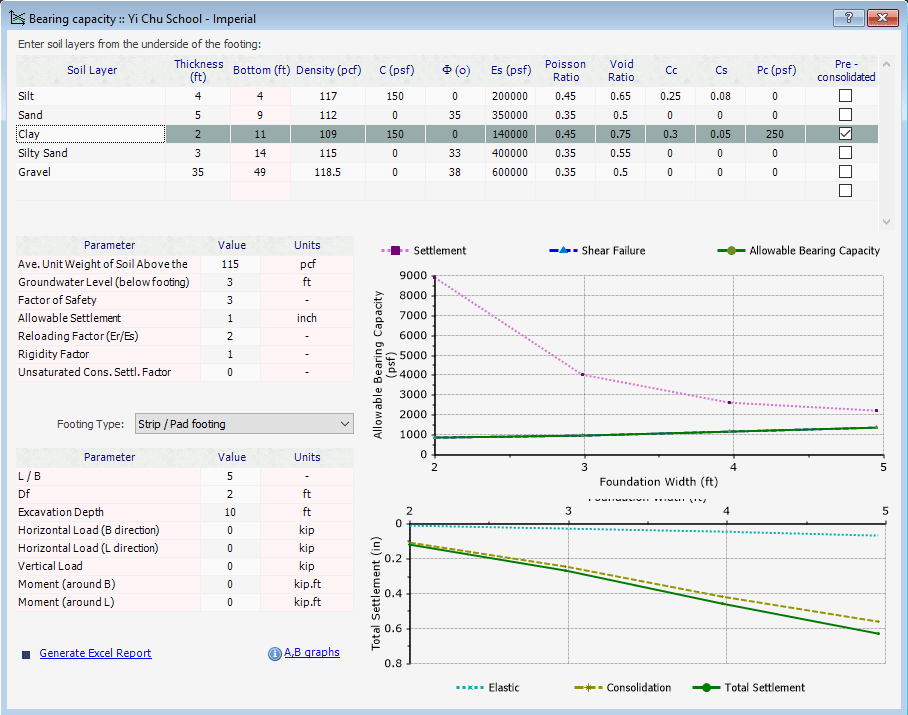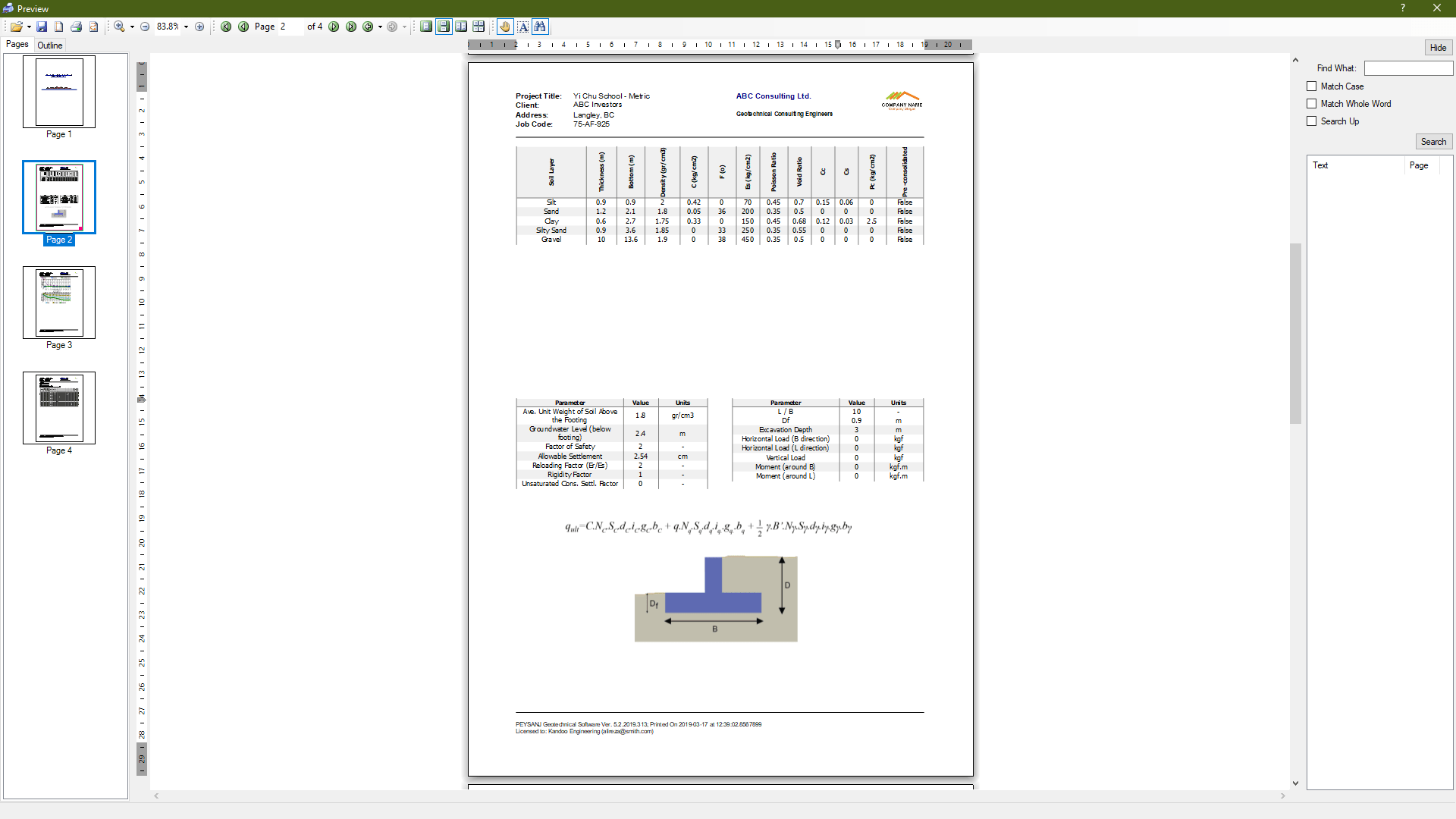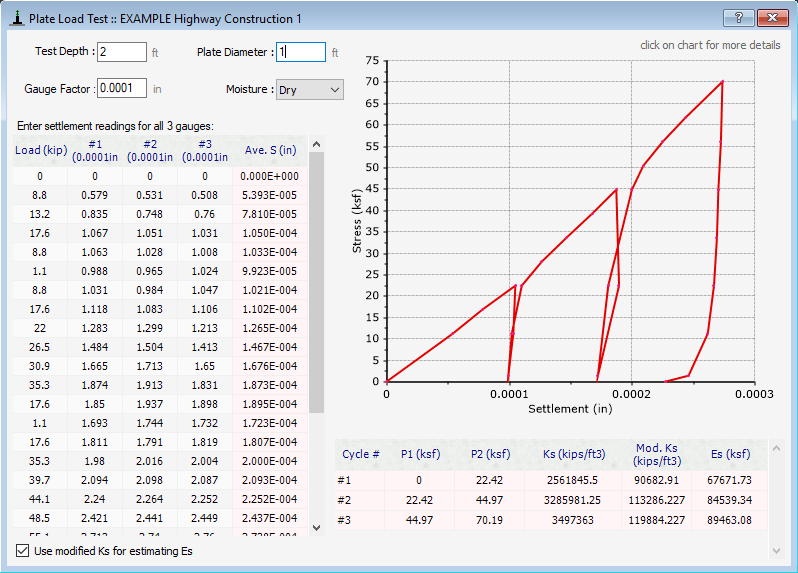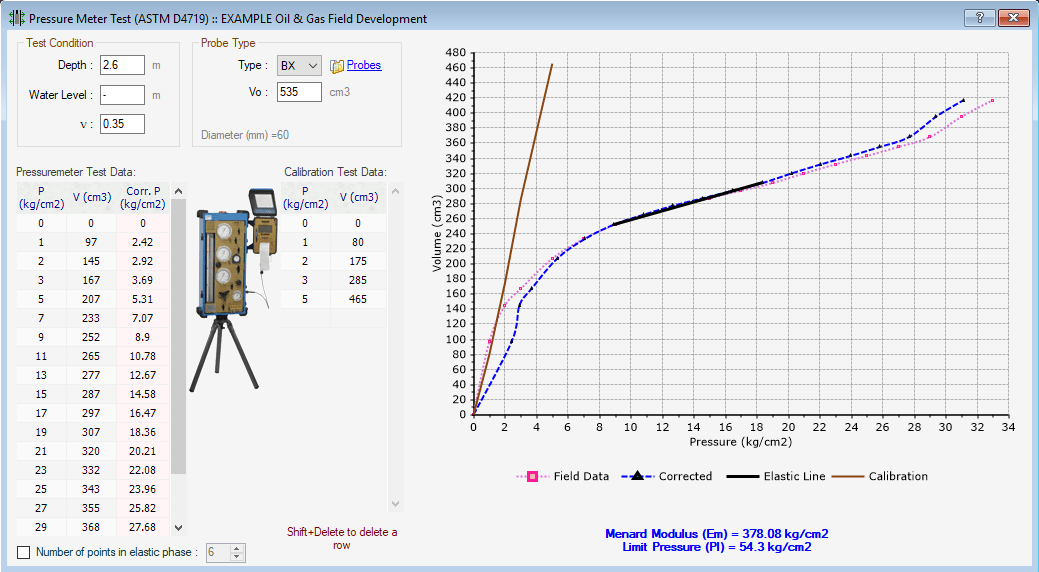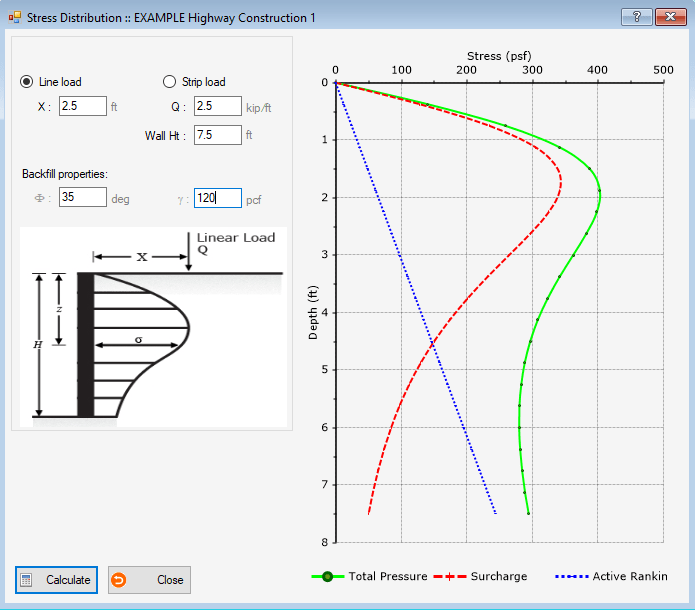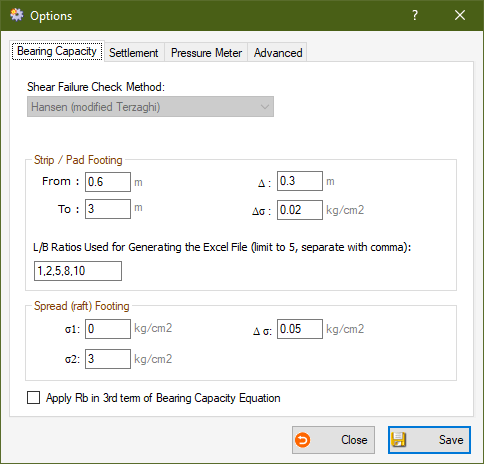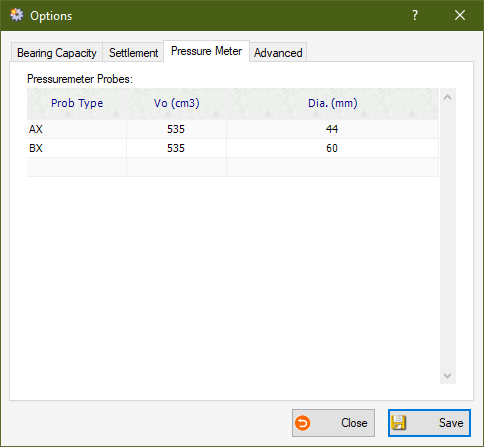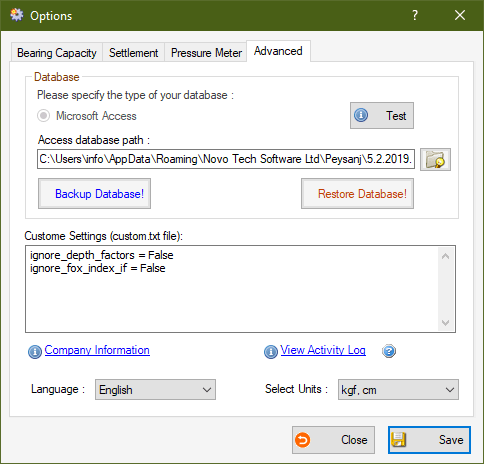Online Order
Your online order takes only 5 minutes! You will receive the download link and an “activation code” by email immediately after your purchase.
| Name | Summary | Price | Buy |
|---|---|---|---|
| Peysanj (12 month lease) | Bearing Capacity / PLT / PMT Software | $350.00 / year | |
| Peysanj (6 month lease) | Bearing Capacity / PLT / PMT Software | $275.00 every 6 months | |
| Peysanj (Perpetual License) | Bearing Capacity / PLT / PMT Software (Peysanj) | $850.00 | |
Bearing Capacity & Settlement Analysis
PEYSANJ is the only software you need for your bearing capacity analyses! Many jobs are too complicated for a simple Excel spreadsheet calculation and need more sophisticated analyses for multi-layer stratigraphy, water level effects, and so on. Allowable bearing capacity should meet both shear failure and settlement criteria.
PEYSANJ uses “Hansen (modified Terzaghi)” method for analysis of soil shear failure (including the effect of groundwater table, if present). For settlement analysis, “Steinbrenner and Goodier (Timoshenko)” and rigid foundation settlement equations are used. Both immediate (elastic) settlement and one-dimensional “Terzaghi” consolidation settlement will be estimated for settlement analysis.
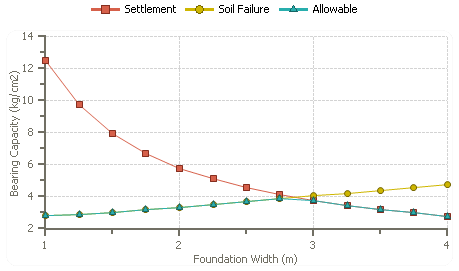
Calculation Methods
Every little details in calculation of bearing capacity and settlement matters!
We know that soil mechanics is a complicated science, and PEYSANJ is designed to give you the power of choosing the calculation methods.
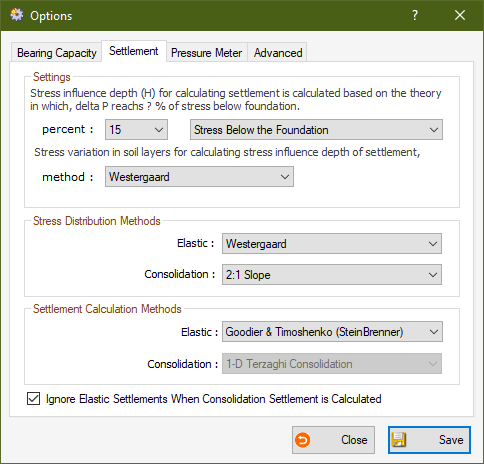
Options Page: settings for settlement analysis
In addition, for each type of analysis, calculation details and a formal report are provided.
Total settlement of the footing is then calculated by summing up the elastic and consolidation settlements. For each footing size, the minimum values of allowable stresses for shear failure and settlement criteria are compared and it is selected as the “Allowable Bearing Capacity” of the footing.
Click to See an Example of PEYSANJ Report

Plate Loading Test
This test is widely used to determine soil elasticity modulus (Es) and modulus of subgrade reaction (Ks). Input data consists of the load (P) applied on the plate, and settlement (S) measured on the gauges. PEYSANJ automatically detects different loading-unloading cycles, and it calculates Ks values for each cycle. Stress-Settlement diagram is also plotted and average Ks value is calculated. Another feature in this module is conversion of Ks30 to Ks of the footing.
- Automatically detecting loading / unloading cycles
- Calculation details for each loading cycle including modulus of subgrade reaction
- All input data and formula are inserted in final report
- User can manually determine the elastic phase if necessary

Menard Pressure-Meter Test
Processing Menard pressure meter test is easy using PEYSANJ! The analysis is based on ASTM D4719 and input data consist of calibration data, pressure (P) and volume (V) readings, groundwater level, etc.
After computing the elastic portion of the P-V curve, “Menard Modulus (Em)” and “Limit Pressure (Pl)” are reported. Pressure vs volume is also plotted along with elastic and plastic phases of the test. The elastic phase of the loading curve can be edited by the user in order to choose the most reasonable set of Em and Pl.
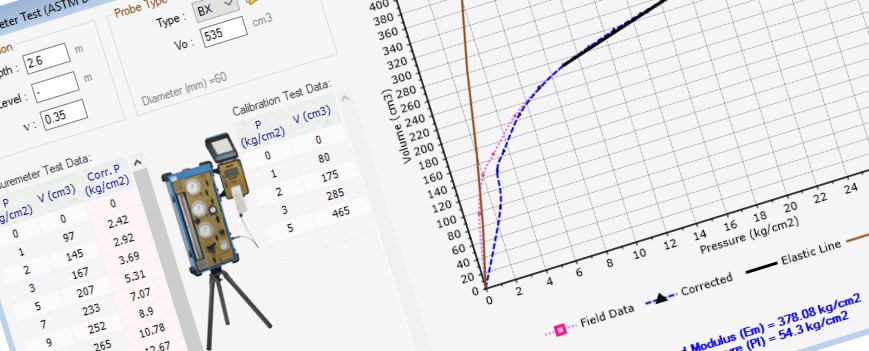
If you would like to learn more about the theoretical background of the methods used in PEYSANJ, please visit its online documentation.
Lateral Earth Pressure
Static Ka, Kp and Ko: Calculating the active, passive and at-rest lateral earth pressure coefficients based on both Rankin and Coulomb methods. The latter considers the effect of soil-wall friction, backslope, and wall batter angle. The magnitude of the resultant force and its point of application is also calculated.
Seismic Kae and Kpe: Lateral earth pressure coefficients for earthquake condition are calculated according to Mononobe-Okabe method for different horizontal and vertical components of the ground acceleration. Detailed values of Kae and Kpe are calculated for every 0.05g steps of vertical and horizontal ground accelerations. In addition to earth pressure coefficients, the seismic surcharge load (Pae – Pa) and total seismic force (Pae) behind the retaining wall are presented.
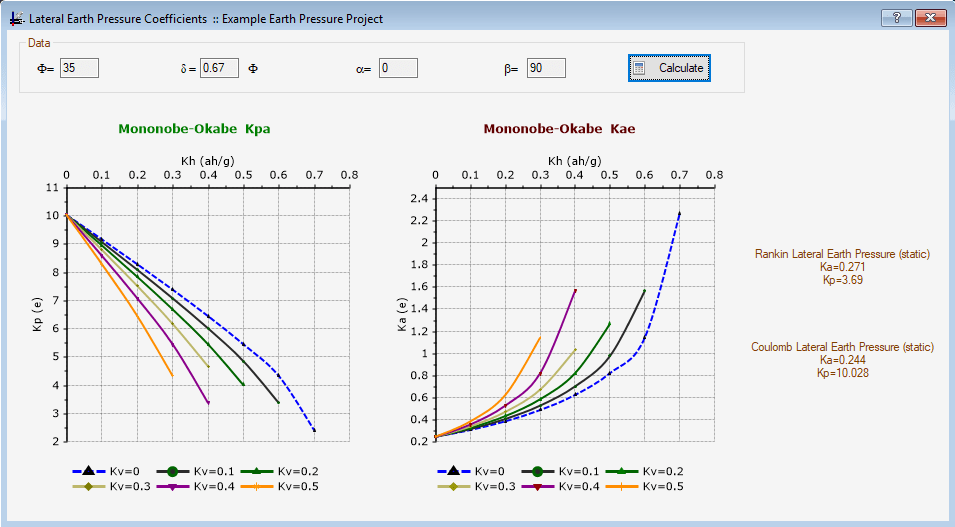
Earth Pressure Coefficient Analysis
Click to See an Example of PEYSANJ Report
1000+ Consulting Companies Around the World Use Novo Tech
Our software is presented with flexible licensing in mind! You do not have to sign into expensive subscription-based contracts. Every company has different budget, licensing preference and purchasing timeline. Our flexible licensing model works based on the number of software packages, and number of licenses purchased.
Contact us today; We provide you the best licensing solution that fits your company needs and budget.
If you would like to learn more about the theoretical background of the methods used in PEYSANJ, please visit its online documentation.
Screenshots
Simplified Slope Analysis
Using this page user can roughly estimate the stable slope based on the design chart proposed by Fang et al. This chart is prepared based on a series of limit equilibrium analyses, and should be only used as a rough estimate since it does not take many parameters such as groundwater level, surcharge, etc. into consideration.
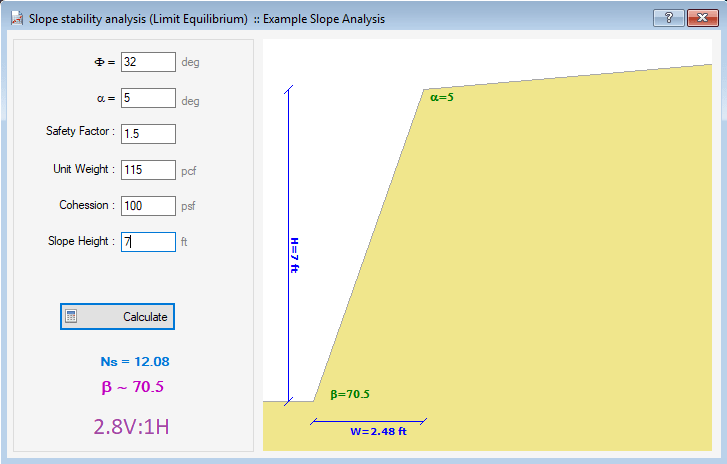
Simplified Slope Analysis for Excavations


